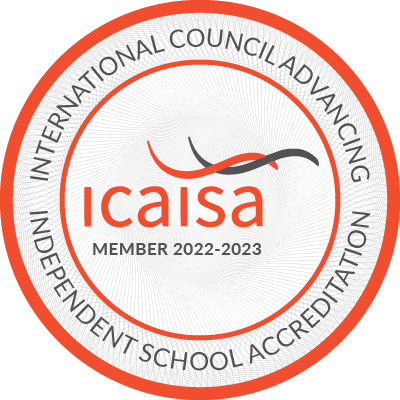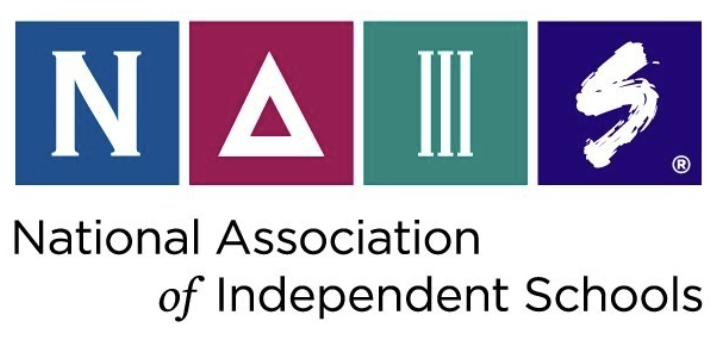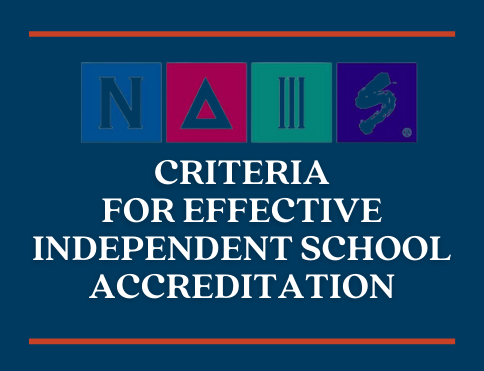|
ABOUT ACCREDITATION
PAIS, under its Commission for Accreditation, offers a means to standards-based accreditation using a comprehensive set of standards for private independent schools in the Commonwealth of Pennsylvania and Delaware. Accreditation ensures the public that member schools meet and maintain articulated standards of educational excellence.
PAIS STANDARDS FOR ACCREDITATION
- The school has a clearly delineated vision, mission, and core values that defines its purposes and guides the community in articulating its goals, academic and non-academic programs, daily operations, and strategic planning.
- The School has defined what constitutes a diverse community in alignment with the School’s Mission, Core Values, and Philosophy and has created and continues to foster a program, culture, and inclusive community of students, families, trustees, faculty, and staff that embrace diverse perspectives, cultures, backgrounds, and identities. The School attends to the quality of life of all members of the community and takes action to create an equitable, inclusive, safe, and just environment.
- The governing body of the school consistently exercises its strategic and fiduciary duties and is guided by the NAIS Principles of Good Practice in fulfilling these responsibilities. (See NAIS Principles of Good Practice).
- The governing body establishes policies that promote and support environmental sustainability for the school.
- The school has a clearly defined and sustainable leadership structure, which oversees mission-appropriate implementation of operations and programs.
- The school’s financial policies, practices, resources, financial planning , and risk management are adequate to support its mission and long-term financial sustainability. The school and its Board have a robust process for identifying, managing, and monitoring critical risks.
- The school’s financial management procedures, including a formal budget-making process and accounting methods, are in compliance with generally accepted accounting principles.
- A financial audit is performed for the school on an annual basis.
- The school’s External Affairs programs reflect the highest standards of personal and professional conduct.
- The school has a well-defined and published admission and enrollment process.
- The school’s institutional development/fundraising program supports the school’s vision, mission, and core values.
- The school’s communications are clear and consistent to all constituencies and effectively support vision, mission, and core values.
- The school’s internal and external marketing initiatives support vision, mission, and core values.
- The school works to maintain harmonious relationships with the local community.
- The school’s academic program is consistent with its vision, mission, and core values, and is based on current research regarding teaching and the learning process.
- Utilizing current research, the Academic Program is based on knowledge, skills, and applications that students need in the 21st Century.
- The school demonstrates that its program, practices, and institutional culture are informed by relevant research regarding how students learn and the knowledge and capacities they need..
- The school provides evidence of procedures to evaluate, report, and track individual and collective student progress; to assess the effectiveness of student learning through the use of data; and to use assembled data to make sustainable decisions.
- The school’s student support services and co-curricular and extracurricular programs and activities facilitate and enhance student learning and offer a broad range of educational experiences for students.
- The school employs a sufficient number of qualified administrators, faculty, and staff to carry out its academic program, to conduct school operations, and to meet the needs of the students.
- The school demonstrates its commitment to providing a safe and healthy environment for its community.
- The school has well-considered emergency and crisis management procedures in place and regularly tests these procedures.
- The school’s physical facilities are appropriate, adequately accommodate its program, and meet the needs of its students and the school community.
- Certificates of Occupancy are on file for all campus buildings.
- The school’s academic program, culture, and community reflect its commitment to supporting students who reflect its mission, values, and pedagogy. (optional Affiliation Addendum)
- The school clearly articulates its commitment to strategic thinking and has well defined plans in place to ensure future sustainability.
The fundamental principle underlying the operation of PAIS is that a school should be evaluated by the association’s standards in light of the school’s own philosophy.
PAIS provides member schools with professional peer review by teachers and administrators from other member schools. The process of thorough and honest self-study followed by a review and on-site visit by a committee provides schools with a fuller understanding of their own strengths and weaknesses and, therefore, enables them to become stronger. It is also through the accreditation process that schools hold themselves publicly accountable to all who seek assurance that they meet accepted standards of educational quality, operation, and staff competence. While each school is accredited based on its individual philosophy, the standards provide a consistent and uniform measure by which all schools are evaluated.
Authorization to accredit member schools has been granted to the Pennsylvania Association of Independent Schools by the Pennsylvania Department of Education under the provisions of the Private Academic Schools Act No. 1988-11.
PAIS is a member of the National Association of Independent Schools and the International Council Advancing Independent School Accreditation.
  
ICAISA MEMBERSHIP

|